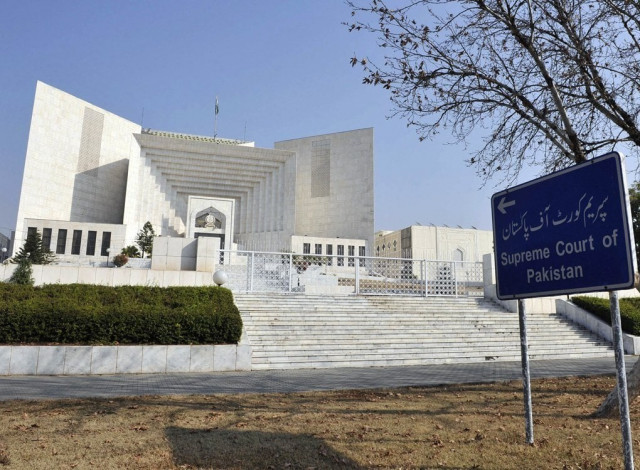No anticipatory bail in criminal cases: Supreme Court
Says only exception to the rule are cases in which mala fide is ‘manifestly intriguing’

The apex court has declared that the accused in a criminal case cannot be granted anticipatory bail unless mala fide is “manifestly intriguing upon the intended arrest”.
“It is by now well-settled that the accused in a criminal case cannot be granted anticipatory bail to subvert or undermine investigative procedure/process.
“[This process] essentially includes arrest in order to bring the statutory exercise to its logical end for effective and meaningful prosecution of the offence through collection of information/evidence consequent upon arrest,” said a written order penned by Justice Qazi Muhammad Amin Ahmed.
Justice Ahmed was part of a three-judge bench – presided over by Justice Mushir Alam – that heard the bail applications of two Federal Investigation Agency (FIA) officers, arrested in a case registered with the FIA Anti-Corruption Circle (ACC) in Karachi.
The officers were accused to have received bribe of Rs24million from Sheikh Muhammad Munawar, arrayed as accused in a financial scam. Munawar had allegedly defrauded the Utility Stores Corporation to effect a massive sale transaction through a fake ISO certification.
During the inquiry, incriminatory statements of various witnesses were forensically confirmed from the computer CDR and ledgers secured from the custody of co-accused Abdul Qadir Memon, a front man. It was on the basis of this comprehensive probe that the petitioners braced for an impending prosecution.
The written order said: “A detailed parallel story narrated by the petitioners notwithstanding, they were admittedly at the helm of affairs to call the shot and thus in a position to rescue the complainant from the troubled situation he was trapped”.
It said various pieces of evidence including forensic data, beyond susceptibility of human interference unmistakably suggest a conduct perfidious to the call of their duty hence, prima facie, cognizable. The court, therefore, dismissed the bail applications.
The order said that mala fide – manifestly intriguing upon the intended arrest – is the only justification to suspend or divert the usual course of law in the case of anticipatory bails. However, this step is “most extraordinary by all means”



















COMMENTS
Comments are moderated and generally will be posted if they are on-topic and not abusive.
For more information, please see our Comments FAQ